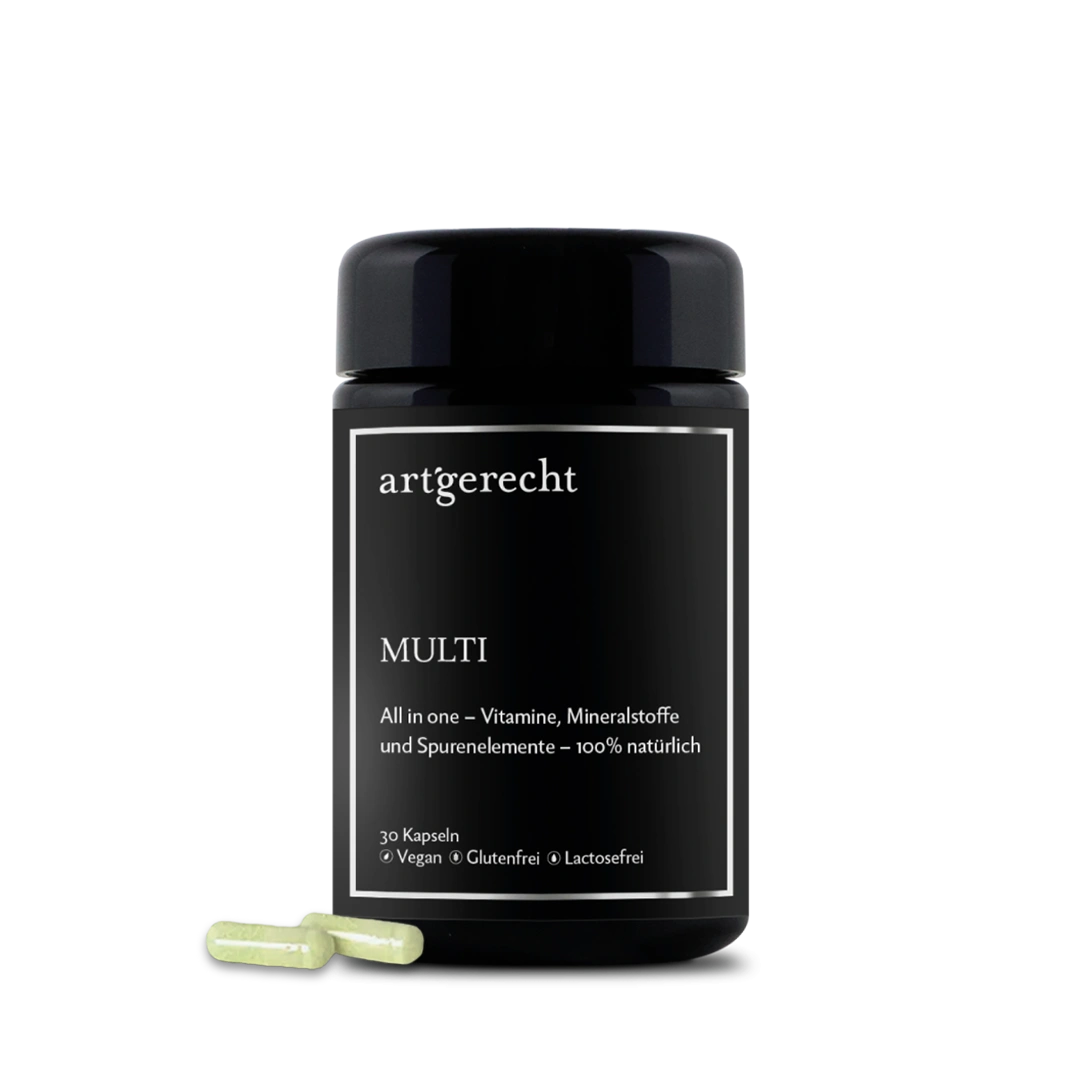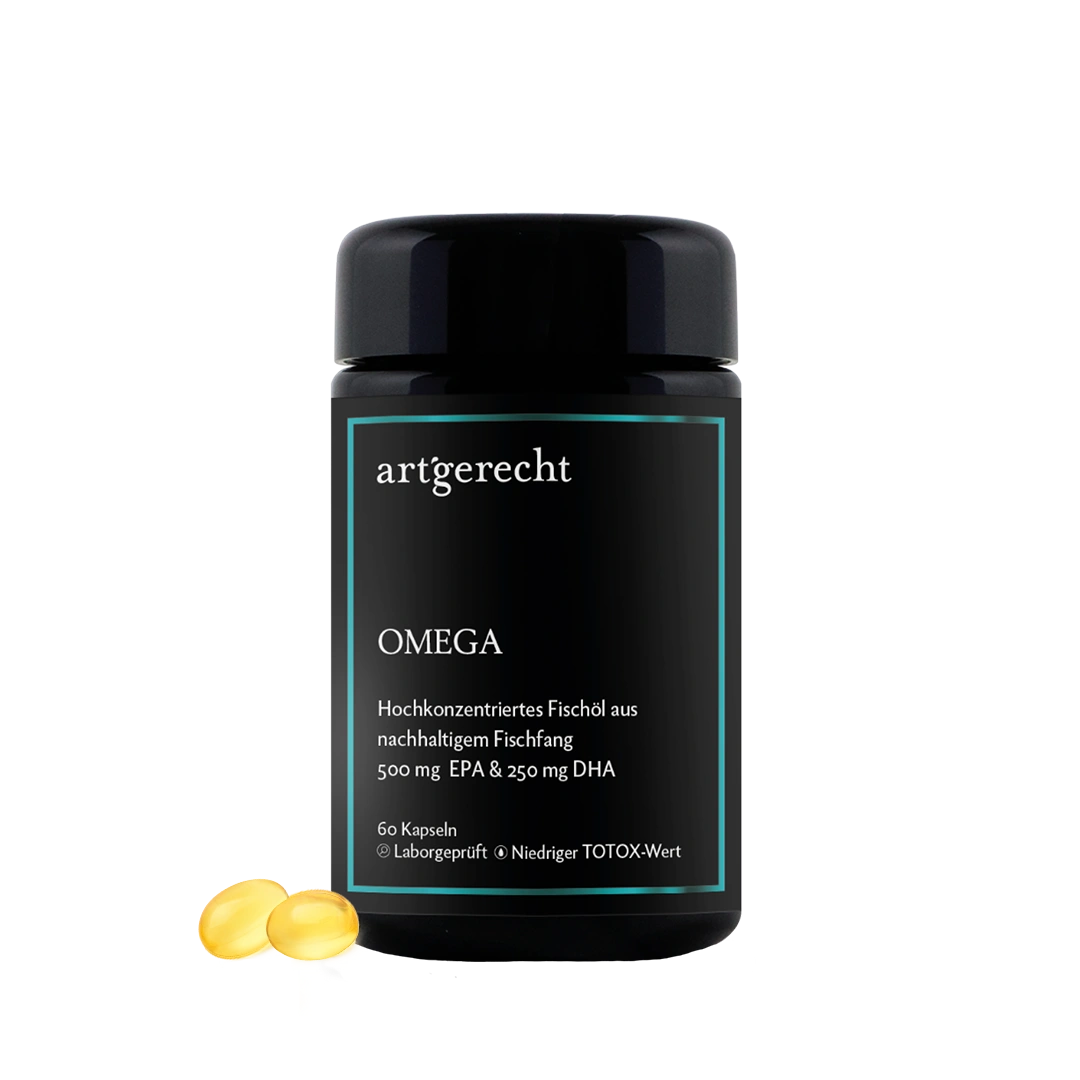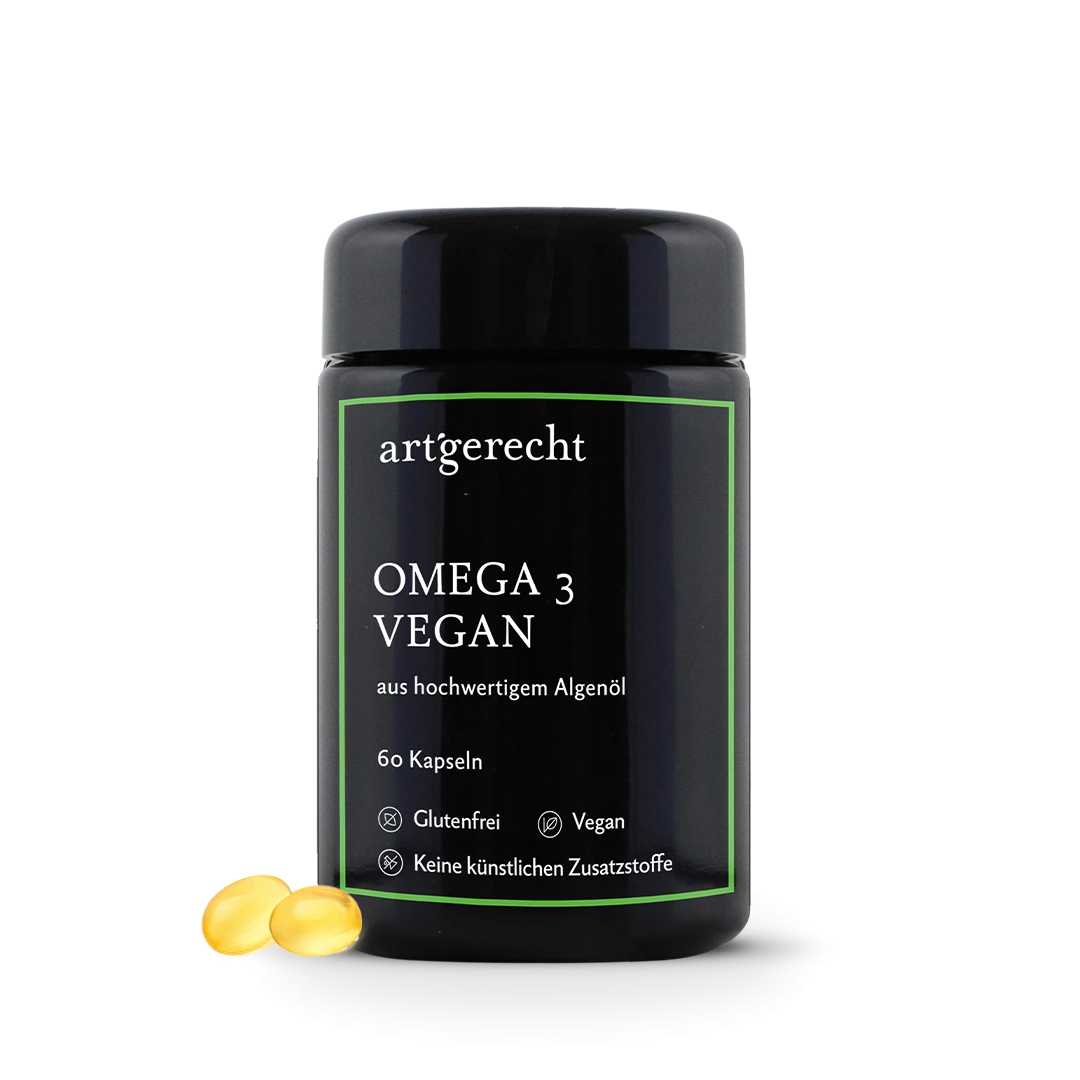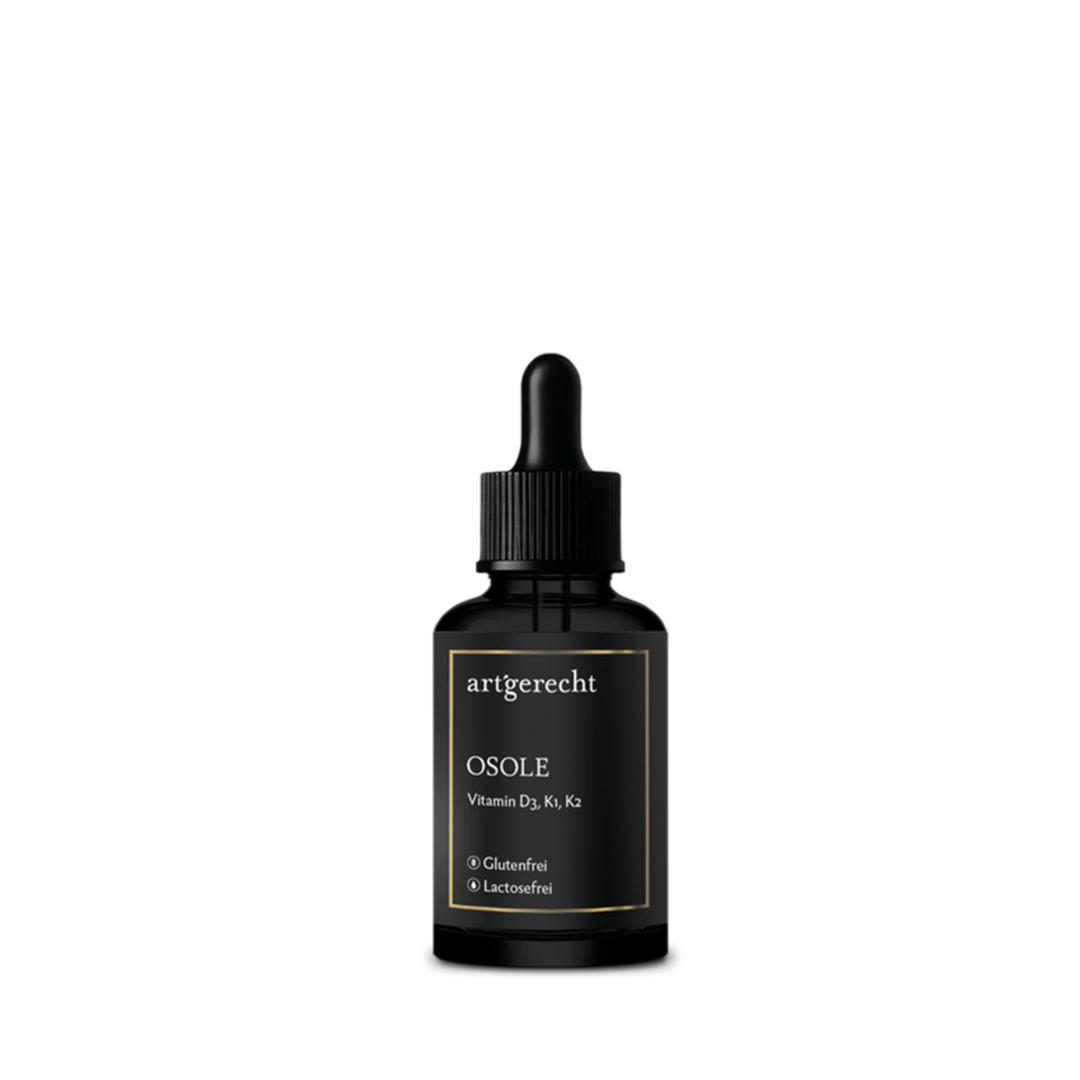

Psoriasis - symptoms, causes & therapeutic approaches
Psoriasis - causes, symptoms and natural treatment options. Psoriasis is a chronic, inflammatory skin disease characterised by an accelerated proliferation of skin cells.
Interested in regular tips & information about health? Interested in regular tips & information about health?Wissenswertes über "Psoriasis"
Psoriasis is a chronic, inflammatory skin disease characterised by an accelerated proliferation of skin cells.
Dandruff results from an accelerated proliferation of skin cells. This rapid cell division leads to an accumulation of skin cells on the surface, which become visible as scaly, reddened patches. These patches can be itchy, painful and inflamed. Psoriasis usually affects the skin, but can also affect nails and joints, which can lead to another form of the disease, psoriatic arthritis.
The exact causes of psoriasis are not yet fully understood, but it is assumed that a genetic predisposition and the immune system play a central role. The immune system mistakenly attacks healthy skin cells, which leads to inflammation, which in turn results in accelerated cell division. These excess cells can then accumulate on the surface of the skin and lead to the typical scaly patches.
There are various forms of psoriasis, the most common of which is plaque psoriasis. It is characterised by red, raised patches with silvery-white scales. Other forms are pustular psoriasis, which is accompanied by pustules, and psoriasis of the nails, in which the nails are affected. psoriasis can be triggered or aggravated by various factors. The most common triggers include stress, as emotional stress can worsen the course of the disease, as well as infections, particularly throat infections caused by streptococcal bacteria, which can activate psoriasis. Skin injuries such as cuts, scratches or sunburn also favour the formation of new skin patches, the so-called Köbner syndrome. Certain medications such as beta blockers, lithium or non-steroidal anti-inflammatory drugs can also exacerbate the condition. In addition, weather conditions, especially cold temperatures and dry air, can dry out the skin and favour flare-ups.
Some vitamins and minerals can help to improve the course of psoriasis or support the healing process. Vitamin D plays an important role in skin health and is often used to treat psoriasis. Omega-3 fatty acids have anti-inflammatory properties and can alleviate symptoms. Zinc and Vitamin E also contribute to skin health and can support the healing of psoriasis lesions.
Symptoms
The typical signs of psoriasis are:
-
Scaly, reddened areas of skin with a silver-white coating (especially on elbows, knees, scalp, sacrum)
-
Itching, burning or tightness
-
Nail changes (stippled nails, brittle or thickened nails)
-
Infrequent progression, often triggered by stress, infections, injuries or medication
There are different forms of psoriasis:
-
Psoriasis vulgaris (most common form)
-
Psoriasis capitis (scalp)
-
Psoriasis inversa (in skin folds)
-
Psoriasis pustulosa (with pustules)
-
Psoriatic arthritis (with joint involvement - see separate article)
Causes and risk factors
Psoriasis is autoimmune and not contagious. The triggers and risk factors include:
-
Genetic predisposition
-
Infections (especially streptococci in children)
-
Stress, skin injuries (Köbner phenomenon)
-
Medication (e.g. beta blockers, lithium, NSAIDs)
-
Alcohol, nicotine, overweight
Treatment
The aim of the therapy is to relieve inflammation, reduce the reduce itching and improve skin symptoms.
Local therapy:
-
Corticosteroids
-
Vitamin D3 analogues (e.g. calcipotriol)
-
Salicylic acid, tar preparations, urea
-
Phototherapy (UVB or PUVA)
Systemic therapy (for moderate to severe psoriasis):
-
Methotrexate, Ciclosporin, Acitretin
-
Biologicals (e.g. TNF-α, IL-17, IL-23 inhibitors)
-
PDE-4 inhibitors (e.g. apremilast)
Complementary measures:
-
Care with moisturising creams
-
Avoidance of trigger factors
-
Nutrition (low inflammation, weight-regulating)
-
Stress management (e.g. meditation, breathing exercises)
Forecast
Psoriasis is not curable, but can often be well controlled with modern therapy. The quality of life can be significantly improved through consistent treatment.
Literature references:
-
Nestle, F. O. et al (2009). "Psoriasis." New England Journal of Medicine.
-
German Dermatological Society (2021). "S3 guideline on the treatment of psoriasis vulgaris."
- Robert Koch Institute (2023). "Health monitoring - psoriasis."
Verwandte Produkte
Für Dein Immunsystem, Knochen und Zähne
OSOLE wird mithilfe der Vollspektrum-Extraktion aus rein biologischen Rohstoffquellen schonend gewonnen.Your basic supply for a comprehensive range of vital and micronutrients.
All essential vitamins, trace elements, and valuable micronutrients 100% from natural raw materials.For Your Eyes, Heart, and Brain
High content of essential Omega-3 fatty acids EPA and DHA, sourced from sustainable fishing.For your eyes, heart, and brain
High content of essential Omega-3 fatty acids DHA and EPA, exclusively from high-quality algae oilFor Your Immune System, Bones, and Teeth
OSOLE is gently extracted using full-spectrum extraction from purely organic raw material sources.Die neusten Einträge
3 Posts in this encyclopedia categoryNeurotransmitters
Die meistgelesenen Einträge
3 Posts in this encyclopedia categoryLactoferrin CLN®
Cologne list
Lactoferrin
Verwandte Suchbegriffe: Psoriasis + psoriasis + psoriasis lichen + psoriasis treatment + psoriasis causes + psoriasis scalp





